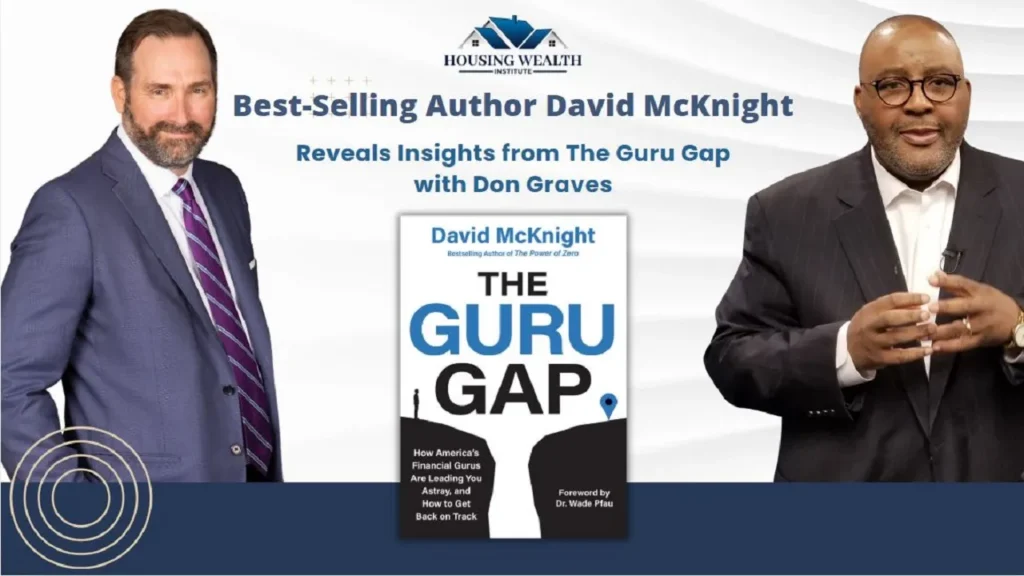My Journey with Dr. Wade Pfau
It’s hard to believe it’s been nearly 12 years since I first met Dr. Wade Pfau. We were both part of a task force on funding longevity hosted by The American College of Financial Services. At the time, Wade was just beginning to explore reverse mortgages—and I had the honor of being one of his early mentors (or as he often says, “coach”).
Since then, Wade has become one of the most respected voices in retirement income planning. His research has played a big role in changing how advisors view reverse mortgages—from a last-resort option to a legitimate and strategic retirement income tool.
Not long ago, I had the chance to sit down with Wade for a candid conversation about his journey, what he’s learned over the years, and why reverse mortgages are gaining serious traction among forward-thinking advisors. We also tackled the big question: Are reverse mortgages really that expensive?
In this blog, you’ll find an overview of our discussion along with direct links to each section of the video. If there’s a specific topic you’re interested in, feel free to skip ahead using the links below.
For a visual description of the costs associated with a HECM, Click Here.
Skip to a Section
Introduction
How Did You Become Involved in Reverse Mortgages (1:09)
Why Such a High Interest in Reverse Mortgages Right Now (2:24)
What is Your Current Definition of a Reverse Mortgage as an Advisor (3:28)
What Has Surprised You the Most about Today’s Reverse Mortgage (4:30)
Do You Consider Reverse Mortgages Expensive? (5:58)
Why Should Financial Advisors Become Knowledgeable about Reverse Mortgages? (7:14)
Overview of the Topics Covered
How Did You Become Involved in Reverse Mortgages
Dr. Pfau shares how reverse mortgages weren’t initially a priority in his research, but a deeper look at the academic data revealed their strategic potential for improving retirement outcomes.
Why Such a High Interest in Reverse Mortgages Right Now
We discuss how market volatility and growing awareness of sequence-of-returns risk are pushing advisors to explore alternative income sources—especially ones that don’t involve selling investments at a loss.
What is Your Current Definition of a Reverse Mortgage as an Advisor
Reverse mortgages are redefined not just as a loan, but as a coordinated spending tool—on par with withdrawals from IRAs or brokerage accounts—in a comprehensive retirement income plan.
What Has Surprised You the Most about Today’s Reverse Mortgage
Wade reflects on how the reverse mortgage strategy becomes more valuable when viewed through a decumulation lens rather than a pre-retirement accumulation mindset.
Do You Consider Reverse Mortgages Expensive?
We examine whether reverse mortgages are truly costly when integrated properly into a plan—and how outcomes can actually improve when the tool is used strategically.
Why Should Financial Advisors Become Knowledgeable about Reverse Mortgages?
The conversation wraps up with an important call to action: if advisors are going to help clients with retirement income planning, they need to understand how to incorporate home equity—often a retiree’s largest untapped asset.
Related Articles:
- Five Strategic Times to Introduce Housing Wealth
- Creating a Long-Term Care Health Plan with Reverse Mortgages
- How to Uncover the Social Security Time Bomb
The content of this blog is for financial advisors and professionals only and is not intended for consumer use. Names, cases, and scenarios are fictionalized for illustrative purposes. The opinions expressed here are those of the author alone and do not reflect the views of any affiliated entities or individuals. Don Graves, NMLS #142667




